Zed
aka Supra
Zed was the contender of the early 2000s. The first five singles from the Christchurch teenagers all entered the Top 20 and debut album Silencer went No.1 in the New Zealand charts, quickly selling 45,000 units. Songs such as ‘Glorafilia’ and ‘Renegade Fighter’ have remained in the national consciousness, reminders of a new era when radio and New Zealand rock once again had a symbiotic relationship. They were radio friendly, professional and ambitious.
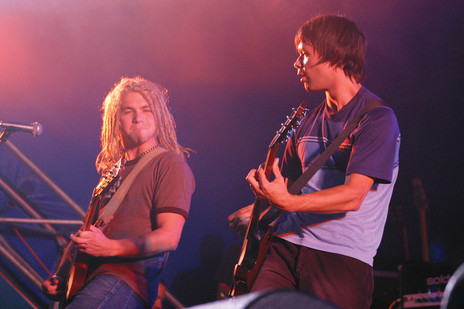
Zed's Andy Lynch and Nathan King, 2001 NZ Music Awards.
Photo credit:
Recorded Music NZ

Ben Campbell, Zed, 2001 NZ Music Awards.
Photo credit:
Recorded Music NZ
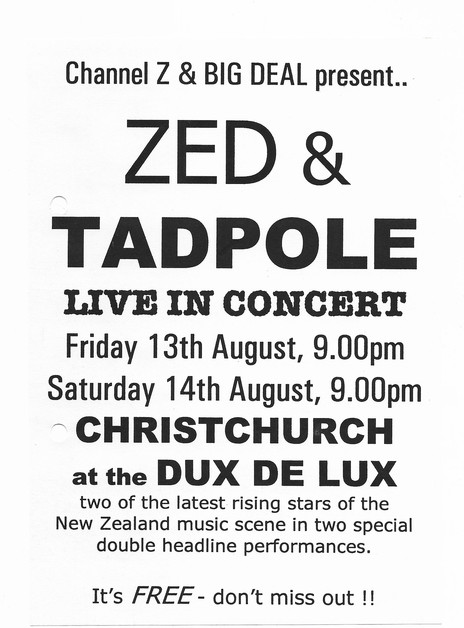
Zed and Tadpole at the Dux de Lux, Christchurch, 13-14 August 1999.
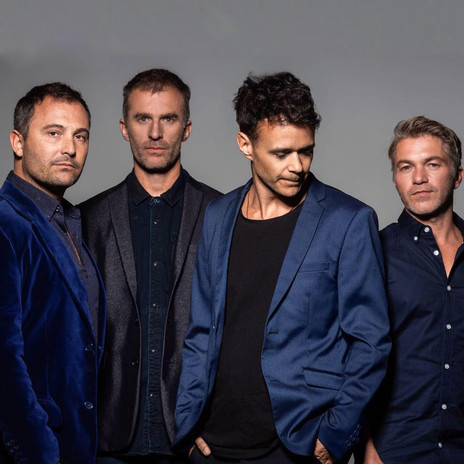
Zed, 2019. Ben Campbell, Adrian Palmer, Nathan King, Andy Lynch.
Photo credit:
Publicity photo
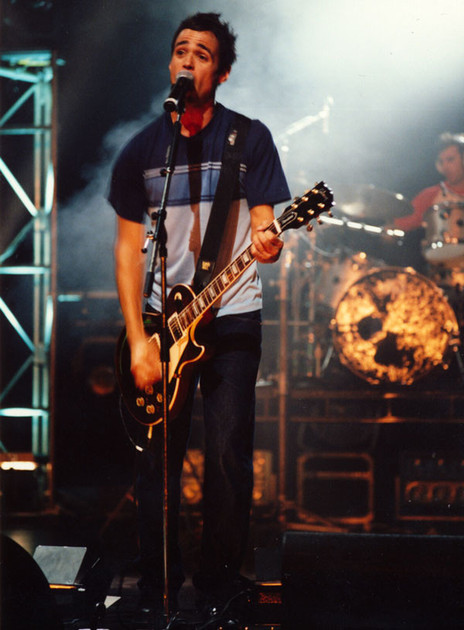
Nathan King from Zed, 2001 NZ Music Awards.
Photo credit:
Recorded Music NZ
Zed - Driver's Side (2001)
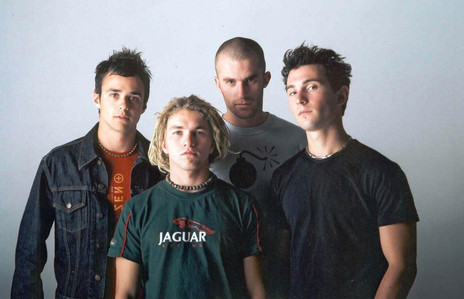
Zed: Nathan King, Andy Lynch, Adrian Palmer, Ben Campbell.
Photo credit:
Publicity photo
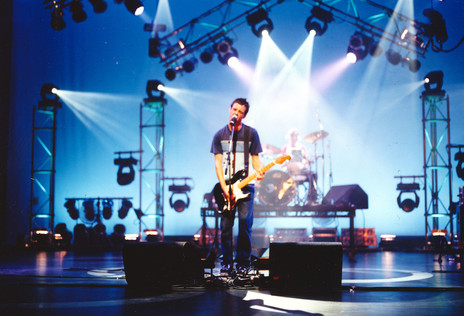
Nathan King, Zed, 2001 NZ Music Awards.
Photo credit:
Recorded Music NZ
Zed - Glorafilia (1999)
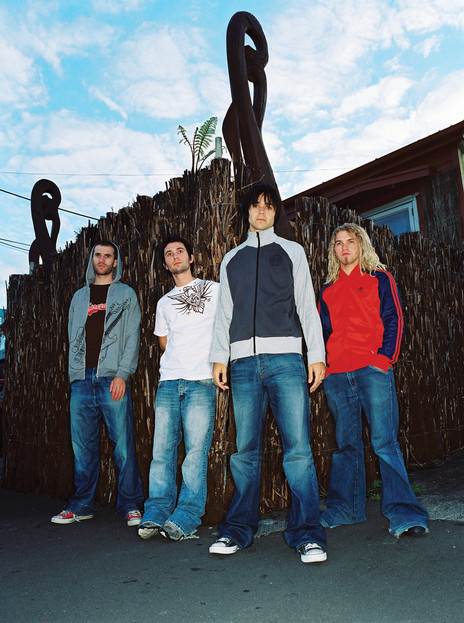
Zed, from left: Adrian Palmer, Ben Campbell, Nathan King, Andy Lynch.
Photo credit:
Publicity photo
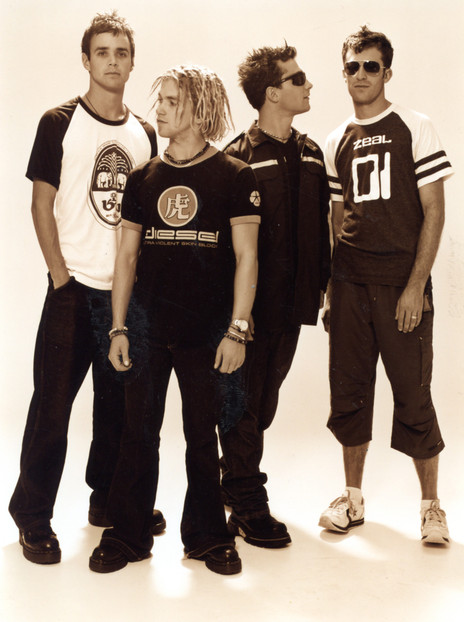
Zed, from left: Nathan King, Andy Lynch, Ben Campbell, Adrian Palmer.
Photo credit:
Publicity photo
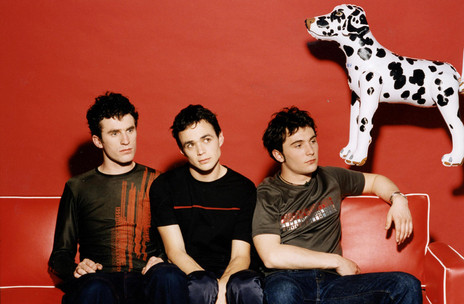
An early photo of Zed for the Glorifilia single cover: Adrian Palmer, Nathan King, Ben Campbell.
Photo credit:
Publicity photo
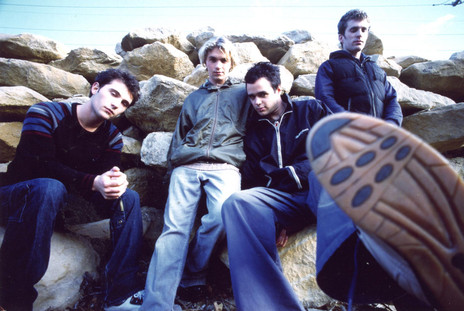
Zed on the rocks: Ben Campbell, Andy Lynch, Nathan King, Adrian Palmer.
Photo credit:
Publicity photo
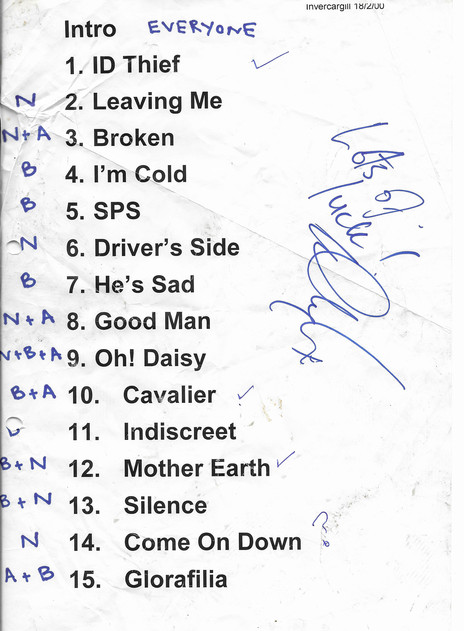
Zed set list, Invercargill, 18 February 2000.
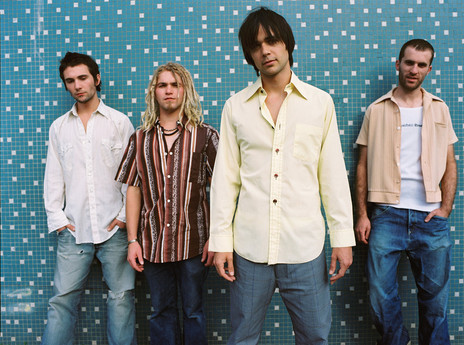
Zed, from left to right: Ben Campbell, Andy Lynch, Nathan King, Adrian Palmer.
Photo credit:
Publicity photo
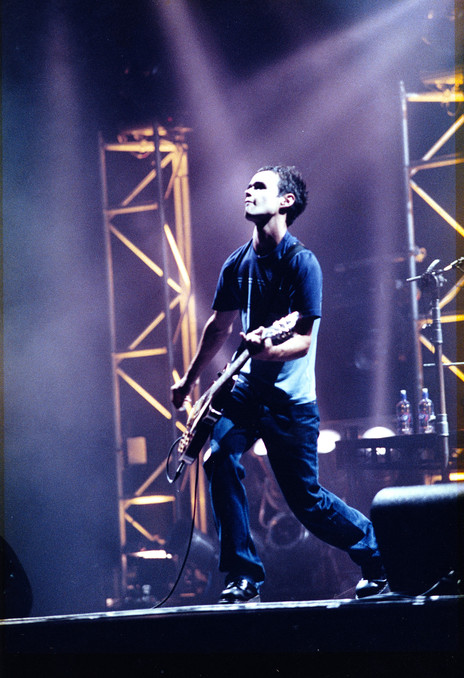
Nathan King onstage with Zed, 2001 NZ Music Awards.
Photo credit:
Recorded Music NZ
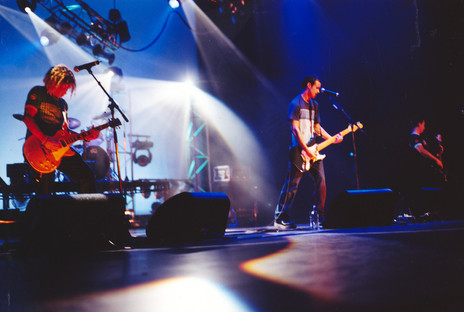
Zed onstage at the 2001 NZ Music Awards: Andy Lynch, Adrian Palmer (drums, obscured), Nathan King, Ben Campbell.
Photo credit:
Recorded Music NZ
Zed - Oh! Daisy (1999)
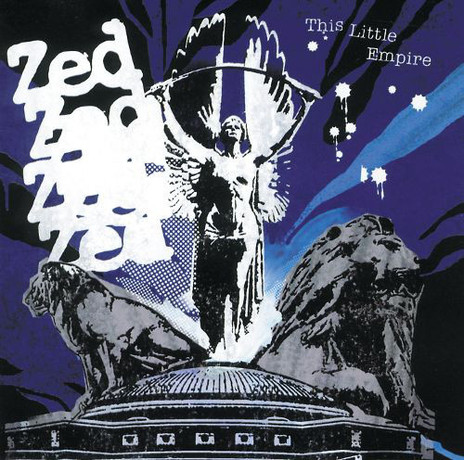
Zed - This Little Empire cover art.
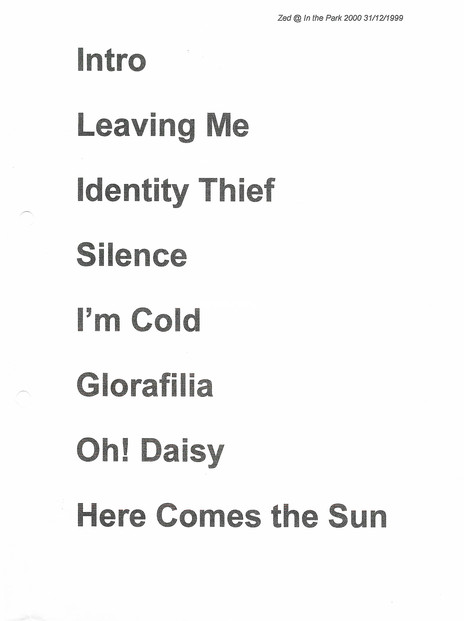
Zed In the Park set list, New Year's Eve 1999.
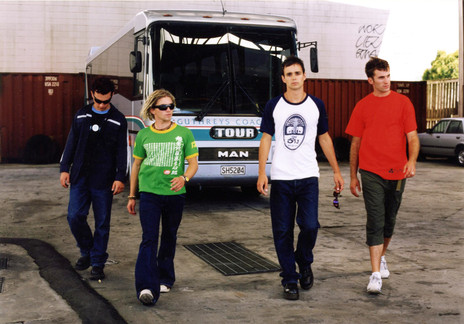
Zed on tour: Ben Campbell, Andy Lynch, Nathan King, Adrian Palmer.
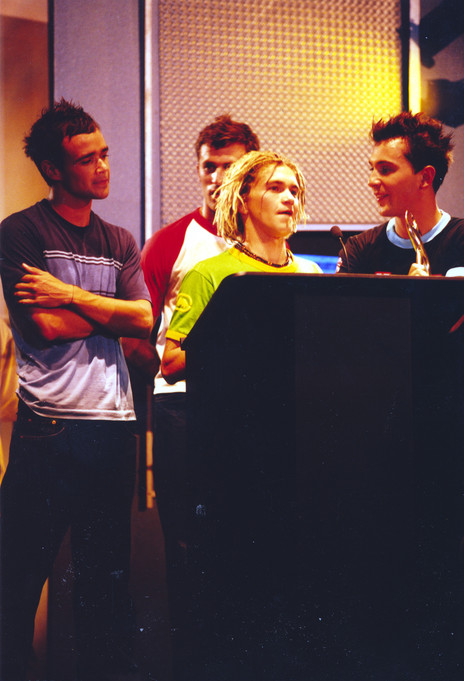
Zed collecting the Tui for Best Album at the 2001 NZ Music Awards: Nathan King, Adrian Palmer, Andy Lynch, Ben Campbell.
Photo credit:
Recorded Music NZ
Zed - She Glows (2003)
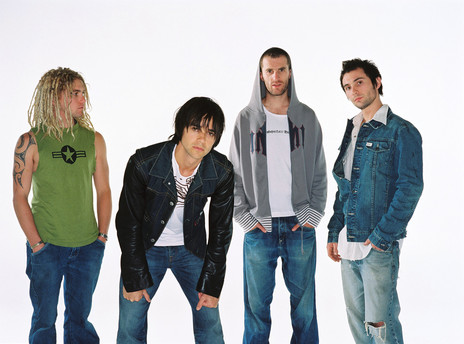
Zed: Andy Lynch, Nathan King, Adrian Palmer, Ben Campbell.
Photo credit:
Publicity photo
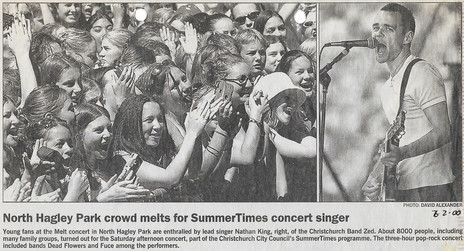
Nathan King from Zed at the Melt concert in North Hagley Park, Christchurch, 6 February 2000. Other acts included Dead Flowers and Fuce.
Photo credit:
David Alexander
Zed - Renegade Fighter (2000)
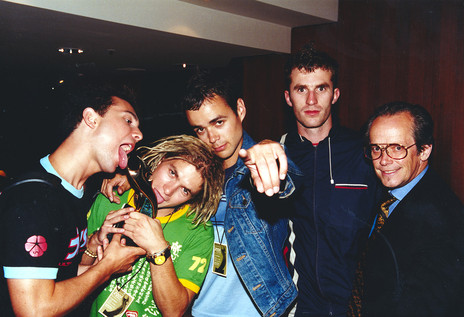
Zed, winners of the Tui for Best Album at the 2001 NZ Music Awards. From left to right: Ben Campbell, Andy Lynch, Nathan King, Adrian Palmer. Manager Ray Columbus is at right.
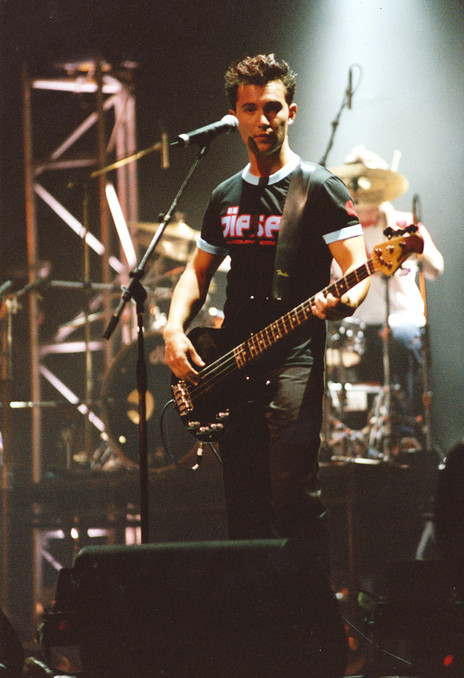
Zed's Ben Campbell performing at the 2001 NZ Music Awards.
Photo credit:
Recorded Music NZ
Discography
Members:
Nathan King - vocals, guitar
Ben Campbell - bass, vocals
Adrian Palmer - drums
Andy Lynch - guitar
Labels:
Universal
Interscope

